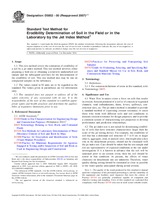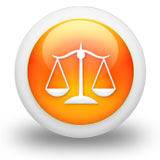We need your consent to use the individual data so that you can see information about your interests, among other things. Click "OK" to give your consent.
ASTM D5852-00(2007)e1
Standard Test Method for Erodibility Determination of Soil in the Field or in the Laboratory by the Jet Index Method (Withdrawn 2016) (Includes all amendments And changes 1/12/2016).
Automatically translated name:
Standard Test Method for Erodibility Determination of Soil in the Field or in the Laboratory by the Jet Index Method
STANDARD published on 1.7.2007
The information about the standard:
Designation standards: ASTM D5852-00(2007)e1
Note: WITHDRAWN
Publication date standards: 1.7.2007
SKU: NS-32792
The number of pages: 6
Approximate weight : 18 g (0.04 lbs)
Country: American technical standard
Category: Technical standards ASTM
Annotation of standard text ASTM D5852-00(2007)e1 :
Keywords:
erosion, jet, soil, water,, ICS Number Code 13.080.20 (Physical properties of soil)
Additional information
| Significance and Use | ||||||||||||||
|
Water flow in nature exerts a force on soils that results in erosion. Erosion potential of a soil is of concern in vegetated channels, road embankments, dams, levees, spillways, construction sites, etc. The jet index method is intended to provide a standard method of expressing erosion resistance; to assist those who work with different soils and soil conditions to measure erosion resistance for design purposes; and to provide a common system of characterizing soil properties to develop performance and prediction relationships. The jet index test is not suited for determining erodibility of soils that have structure characteristics larger than the scale of the jet testing device. For example, the erodibility of soil that has a dominant soil structure of 7 to 8 cm or larger (that is, aggregate, clod, or particle size), that might play a key role in the detachment process, should not be estimated with the jet index test. Care should be taken that the test sample and test are representative of expected conditions at the site under investigation. If it is known in advance that the soil will be saturated prior to an erosion event, then the soil should be tested in that condition. At present, the effects of water chemistry on detachment rate are unknown. Therefore, water quality during testing should be simulated as close as possible to the water quality anticipated during actual erosion. Note 1—The quality of the result produced by this standard is depend upon the competence of the personnel performing it, and the suitability of the equipment and facilities used. Agencies that meet the criteria of Practice D 3740 are generally considered capable of competent and objective testing and sampling. Users of this standard are cautioned that compliance with Practice D 3740 does not in itself assure reliable results. Reliable results depend on many factors; Practice D 3740 provides a means of evaluating some of those factors. |
||||||||||||||
| 1. Scope | ||||||||||||||
|
1.1 This test method covers the estimation of erodibility of a soil by a jet index method. This test method involves either preparing a field site or obtaining a relatively undisturbed soil sample and the subsequent activities for the determination of the erodibility of soil. This test method also may be run on compacted samples in the laboratory. 1.2 The values stated in SI units are to be regarded as the standard. The values given in parentheses are for information only. This standard does not purport to address all of the safety concerns, if any, associated with its use. It is the responsibility of the user of this standard to establish appropriate safety and health practices and determine the applicability of regulatory limitations prior to use. |
||||||||||||||
| 2. Referenced Documents | ||||||||||||||
|
We recommend:
Updating of laws
Do you want to be sure about the validity of used regulations?
We offer you a solution so that you could use valid and updated legislative regulations.
Would you like to get more information? Look at this page.




 Cookies
Cookies
